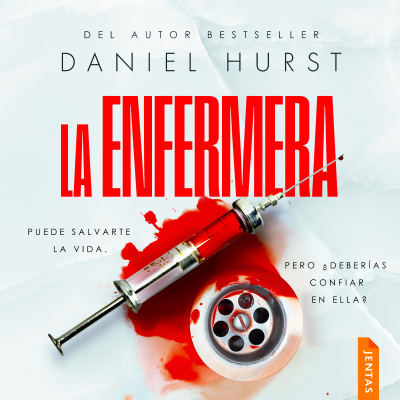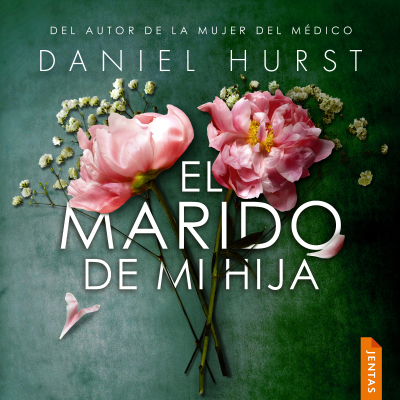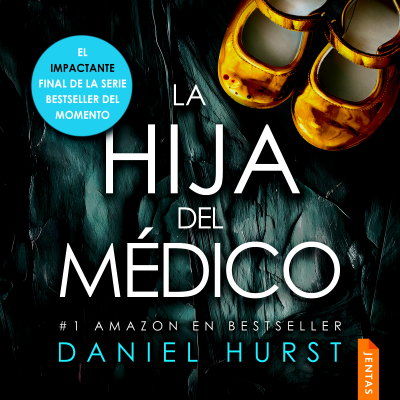
The Meaningful Money Personal Finance Podcast
inglés
Tecnología y ciencia
Disfruta 30 días gratis
4,99 € / mes después de la prueba.Cancela cuando quieras.
- 20 horas de audiolibros / mes
- Podcasts solo en Podimo
- Podcast gratuitos
Acerca de The Meaningful Money Personal Finance Podcast
Pete Matthew discusses and explains all aspects of your personal finances in simple, everyday language. Personal finance, investing, insurance, pensions and getting financial advice can all seem daunting, but with the right knowledge and easy-to-follow action steps, Pete will help you to get your money matters in order. Each show is in two segments: Firstly, everything you need to KNOW, and secondly, everything you need to DO to move forward on the subject of that episode. This podcast will appeal to listeners of MoneyBox Live, Wake Up To Money, Listen to Lucy, Which? Money and The Property Podcast. To leave feedback or ask a question, go to http://meaningfulmoney.tv/askpete Archived episodes can be found at http://meaningfulmoney.tv/mmpodcast
Todos los episodios
598 episodiosListener Questions Episode 35
It's episode 600 of the podcast, not that we're doing much to mark that milestone! We have some excellent questions today, taking in retirement planning, getting a mortgage if you have a new business and how flexible ISAs work! Shownotes: https://meaningfulmoney.tv/QA35 [https://meaningfulmoney.tv/QA35] 02:43 Question 1 Hi Pete, I'm a single household, due to pay my mortgage off in my early 50's….I have very little savings and pensions are everywhere and been 'balanced fund choices' as I either do self employed work or fixed term contracts. I'm really concerned I won't have 'enough' to retire. Where do I start to know how much I need? I don't have an extreme fancy lifestyle but want to live comfortably with running a car, having a nice home and having a holiday every few years. I would also like to help my siblings out if possible when they need it. Also for your business…..have you thought of making it an 'employee owned trust' in the future? This could be a good option if you don't want it swallowed up by larger organisations and want to keep a people focussed culture. Thanks, Anna 12:57 Question 2 Hi Pete and Roger Recently discovered the podcast and it's been really helpful in getting my thoughts straight about future planning - thank you! My job gives me a DB pension that as it stands will give me £4617 per year at 67 - for every year I work that will go up by one 54th of my salary, (£57k) so £1055 annually if I stay at the same grade. Increased by cpi plus 1.5% annually at the moment; and by CPI only once in payment. I can exchange part of this for a lump sum when I take it but that's a decision for another day! I'm projected for full SP at 67 after another 2 years contributing. I have £30k in a pensionbee that I'm adding to £100 a month, and after listening to the podcast I have started an AJ Bell SIPP (vanguard lifestrategy 60% equity) which I'm adding £200 a month to. Also working on the cash ladder/emergency fund - currently just £5k in a cash ISA I am hoping to get this up as much as possible. After overpaying mortgage and contributing to PensionBee/SIPP I can save £200 in a good month. I am aiming to retire as soon as I possibly can after 60, when the kids will all be in their 20s. I am sure this seems impossible but might as well aim high!!! So my priority is to build for the years between 60 and 67. And leave something for the kids, eventually! So…my question!! I have an old tiny deferred DB pension that I can take at 60, £3461 lump plus £1153 per annum (no option to take either a smaller or larger lump sum). I can't trivially commute this due to the rules of the scheme. As it's deferred there are no other benefits eg death in service. Or, I can take this now (age 53) with a reduction for early payment so it would be worth £3076 lump and £869 per annum. The pension increases each year by CPI while deferred and also when it's in payment. Does it make sense to take now, and put lump and monthly payment into either mortgage, or SIPP, or cash ISA? And if so which - SIPP gets me extra 25% from the gov as it's under pension recycling amount? But £3k off my mortgage now might be better. Cant get my head around the maths of this...but my gut feel is it would be working harder for me in my hand despite the fact I'd be taxed on the annual amount? I'd make sure that with my work and personal contributions I stay in 20% tax band and reclaim from HMRC when I do my tax return. Sarah 19:39 Question 3 Hi Pete and Roger, great show and love the new format to allow listeners to ask lots of questions. My question is around pension inheritance. When a person dies and passes a DC pension to a spouse or child, does the inheritance remain in the pension wrapper when it passes on or does it lose its pension wrapper status which allows the person inheriting to use the cash as they want without the pension restrictions? Many thanks, Kavi 26:04 Question 4 Hi Pete I've been watching your videos and listening to your podcasts for about two years now and I'll start by thanking you (and the youthful Mr Weeks) for the public service you provide outside your paying work. I have what I think is a simple question, but I don't seem to be able to find a definitive answer on-line. I retired about this time two years ago at the age of 62 so I'm 64 now. I have a DC pension in the form of a SIPP which is currently worth a little more than £600k. I also have a similar amount in savings (some in cash, some in an S&S ISA). I live on a combination of the income provided by the cash and the S&S ISA, plus a series of small UFPLSs taken roughly quarterly from my SIPP throughout the tax year. At this stage the SIPP withdrawals are relatively modest (totalling maybe 12k a year, of which of course 3k is tax free). My intention is to continue doing the UFPLSs at roughly the same rate, possibly increasing a little as a result of inflation. State pension will add another 12k or so to my annual income in 3 years so that will likely reduce the need to increase my SIPP withdrawals for a while. My SIPP is currently growing faster than my rate of withdrawal. I understand that the maximum tax free cash I can have out of my pension in my lifetime (under current legislation) is £268,275 and obviously at my current withdrawal rate, I'm not getting to that total anytime soon. However if I've understood the rules correctly (and I may not have), I think my ability to have tax free cash once I reach the age of 75 goes away. If that's true, presumably I need to crystallise my SIPP pot just before I reach age 75, taking a quarter of it or my remaining LSA (whichever is smaller) as a tax free lump sum, at which point the remainder turns into an entirely taxable (crystallised) draw down pot? Alternatively, have I completely misunderstood what happens at age 75 and I can continue to do UFPLSs (with 25% tax free) until the cows come home, or I reach the LSA, whichever is sooner? I don't think it's relevant to my question above but just for background, I have a wife who inherits everything if she survives me, or a few nieces and nephews and charities that benefit if she doesn't. We have no children of our own. Keep up the good work gentlemen. Regards, Robert 31:05 Question 5 Hi Pete My son, who has never been a saver (apart from workplace pension) and never seems to have any spare money (single dad, renter) is in the process of going self employed with a colleague. If all goes well, he has a chance to make a reasonable income, not be hand to mouth and periodically take lump sums as a company director. E. G £5k to £10k starting in a couple of years. My question is not about the viability of the business but this business will open up the prospect of my mid 30's son, David, owning a house while I am alive. As in, building up a deposit as dividends are paid. It may take several years and then, I assume, he would have to go through the pain of a self employed mortgage. An area that I know nothing about. In effect, he is just starting out, but we would be really interested in your thoughts about the longer term aim of buying a house. Many thanks again for your wonderful books and podcasts Helen 37:55 Question 6 Hi Pete & Roger, I continue to recommend your podcast to others. Please keep up the excellent work. My question is on the process of using flexible Cash ISAs. I cannot find any worked examples online and a few IFAs I have approached suggested kicking back the question to the ISA provider but I would appreciate your thoughts. My wife and I have £200k in flexible cash isas. We plan on using these funds for a house purchase. Should I reduce the balance to zero, can I top the ISA back up to the full £200k provided the money goes in and out of a 'flexible' cash isa (and is within the same tax year)? I would be in a position to do this following the sale of some investment property.. And the second part of the question would be can the money move freely between a stocks and shares isa and a flexible cash isa eg £200k in a flexible cash isa moved into a stocks and shares isa > then back to the flexible cash isa. We are both higher-rate tax payers and I won't drop a tax bracket in retirement so I feel the ISAs are the most useful savings bucket we hold. Take care and all the best. Stuart
Listener Questions Episode 34
We're getting into the groove of doing video podcasts now, and today we have another mixed bag of questions. They include the tax implications of moving abroad, whether to start a pension in your 60's, whether it's possible for a pension fund to be too big and lots more besides! Shownotes: https://meaningfulmoney.tv/QA34 [https://meaningfulmoney.tv/QA34] 01:24 Question 1 Hi Pete and Roger Thanks for the fantastic podcast, YouTube videos (and book) I have learnt so much. My question is essentially about whether to overpay my mortgage or invest. I have watched Pete's videos on this subject but just wanted to check if my situation changes anything. I'm a 41 year old Firefighter and I am in the Firefighters Pension Scheme. I am recently divorced and as such have had to start again with a 25 year mortgage currently fixed for 5 years at 4.1%. Essentially should I focus on overpaying this mortgage so that it is definitely paid off by the time I am 60 (When I can retire from the Fire service) as I already have the DB Firefighters Pension. Or would I still be better to invest this money in a stocks and shares ISA and use it to pay off the mortgage at a later date? My disposable income for whichever option would be around £200 a month. Lastly I will probably continue working past 60 yrs old but it may be in a different profession as by that age I may not feel like dragging hose and climbing ladders anymore! Thanks again, James 05:33 Question 2 Hi Pete and Roger, I've been listening to your brilliant podcast since COVID, so around 5 years now and always look forward to the new episode coming out. I don't really have a financial related question for you, more some advice... I've tried to educate my daughter on personal finance and I think she now has a good grasp and is interested in becoming a financial advisor. She is now 19, has decent A levels and has just completed an Art foundation course. She has University offers for September which she has deferred as she really doesn't want to go! We live in West Kent (nr Tunbridge Wells) and I've been looking for trainee, bottom of the rung, Financial advisor jobs for her but I can't seem to find anything. She could commute to London, if required but would rather stay local if possible. Do either of you have any suggestions about how she might be able to get into the industry? We're happy to pay for courses of that helps her but not sure what would be best. Sorry for the long email, any advice would be very gratefully received. All the best and keep up the great work Matt and Belle Hart 13:23 Question 3 Hello to Pete and Rog, Thanks for the podcast so far, my family is in a much sounder financial footing since I've started putting into action some of the basics you've spoken about previously. ISAs, pensions and insurance all ticking along nicely now - thanks to you! I have a question about my pension, is it possible to add too much? My thoughts are, if my pension pot in today's money is worth £1.25m when I retire, I can take the 250k tax free and £40k a year thereafter, anymore than this and I would be paying 40% tax on my drawings. Are there benefits I'm missing of having a larger pot (say £2m)? Not one I need to worry about yet, if at all, but it's always puzzled me! Many thanks for the content, keep up the good work and enjoy the sunshine this weekend! Adam 18:30 Question 4 Hi Pete & Rog, Have been a long time listener and have loved your double act with the self effacing banter alongside sound, sensible guidance on the minefield that personal finance can often seem to be. Listening whilst walking the dog is like chewing the fat down the pub with a couple of great friends, So my situation is this... 47 years old, married with two kids (11/14). Myself and my wife both have good jobs, own jointly (own names) 8 x BTL properties generating a profit. Equity in Portfolio is about £400k Portfolio was built to provide additional income and to support us in retirement (either the income or by selling) We have our own home (mortgaged) and are in the process of moving to a bigger place as we're growing out of where we are. This will come with a bigger mortgage as we're scaling up so to minimise the increase in monthly payments we're increasing the term back to our state retirement ages (which is a bit depressing!). So our ideal plan is to have the "choice" to semi retire / work as much or little as we want by age 57 - so around 10 years from now but we are not sure whether this is realistic and the best way to set things up to achieve it if it is. We would probably still work part-time beyond 57 but would want to have other sources of income that could support a comfortable lifestyle. To add to the complexity, but in a good way, I'm also in the process of changing jobs and the new job comes with a £20k pa pay rise and a matched pension at 6%. This is obviously lower than my current employers scheme but I plan to at least match what currently goes into my current employer pension one way or the other. So after what must be one of the longest pre-ambles you've ever read here are my question(s): In terms of where we are now do you think getting to a position where we have a choice to retire/semi retire in 10 years is realistic and what are the key things we should be doing now ten years out taking into account our circumstances? How would you approach the pension situation with my change of employer, my thought was to make contributions to my private pension to cover the overall reduction (9% matched to 6% matched) between employers so that I'm still putting in 18% overall. I think I may be able to put as much as I like into my new employers scheme though (but they'll only match 6%) so would this be a better option? In terms of our mortgage in 10 years it will still be around £350k so we would want to reduce this significantly or even pay off in full at that point. My thought was to sell 5-6 of the BTL's over 5 years leading up to age 57 to pay it down however this obviously reduces our passive income from the portfolio and we'd pay a chunk of CGT along the way. Are there any better ways of achieving the same result? I hope I haven't broken any rules around length of email and number of questions, I can only hope you'll treat this with your customary humour and patience! Keep up the great work guys. Best Regards, Nick 25:15 Question 5 Hello Pete and Roger -I'd like to say how your podcast has really helped me to focus on preparing for retirement ,so thank you . My question is I'm in my early 60,s I have 2 x Db pensions which will pay about £22000 Pa immediately if I choose , a full state pension at 67 and I have no mortgage and cash savings of £235000 half of which is in cash ISAs. My DB Pensions and state pension will be enough for my life style . I may move home next year hence the large cash savings and also because I recently divorced and that's how the settlement added to that figure. It was a coercive relationship and I'm so worried now I hold too much cash as I never had my own money to invest in a pension. Prior to the marriage and children I did work and pay into a pension which will provide half of the DB pension as stated earlier but that all stopped when I married. Should I start a personal pension now so close to retirement if I know I'll have spare cash to pay the max £3600 inc tax relief to take advantage of the tax relief and build up a pot not for income necessarily but for care home fees /inheritance tax costs for my two young adult children? Or shouldn't I worry? Many thanks for your help. Charlotte. 30:13 Question 6 Dear Pete and Rog, Thank you so much for your incredibly valuable podcast. I've learned a great deal from it and really appreciate the clarity and insight you bring to complex financial topics. Can't wait for the Youtube version to finally see what Rog looks like! I had a question that I hope you might be able to shed some light on. My wife is from Slovakia, and we're likely to retire there in the future with our two children. I understand that capital gains tax and inheritance tax are both zero in Slovakia. However, I've read that UK-situs assets remain within the scope of UK inheritance tax even after leaving the UK, and that these would seem to include UK-domiciled OEICs such as the Vanguard LifeStrategy 100% fund, which I currently hold in a general investment account. Would it therefore make sense to consider switching from the LifeStrategy 100% UK domiciled fund to an Ireland-domiciled ETF such as the Vanguard FTSE All-World UCITS ETF (VWRP)? Would doing so resolve the issue of UK IHT exposure on those Situs assets? Or transferring the UK OEICs to a global investment platform, would that work (seems too easy to be true)? Any other tips to look into before making the big move abroad? Thank you very much again for your time, and for all the invaluable information you share! Please keep it going ! Best regards, John
Budget 2025 - Roger and Pete respond!
Roger and Pete discuss the November 2025 Budget, 24 hours after it was announced by Chancellor Rachel Reeves. We cover the salient points from a financial planning standpoint and try to avoid politics if we can! Shownotes: https://meaningfulmoney.tv/session598b [https://meaningfulmoney.tv/session598b] 02:37 Income Tax 09:27 Capital Gains Tax 12:35 IHT 17:32 State Pension 19:48 Salary Sacrifice 25:32 What was NOT announced 30:02 VCTs 30:53 High-Value Council Tax Surcharge 34:00 EV and Plug-in Hybrid mileage scheme - eVED 37:55 Student Loans 38:44 Opinions 41:37 A Podcast Review
Listener Questions, Episode 33
Welcome to another show full of questions form you, the audience and hopefully some meaningful questions from Pete & Roger. This week we have questions about paying school fees, becoming a financial adviser, how to invest an inheritance and lots more! Shownotes: https://meaningfulmoney.tv/QA33 [https://meaningfulmoney.tv/QA33] 01:15 Question 1 Good morning Pete & Roger, Thank you for a great podcast, been really enjoying it over the years and it's been no end of help for me. My question concerns my grandchild. She was born in America but now lives in the UK, is duel nationality. As grandparents we were hoping to put money aside into a savings account for her. Now obviously we thought the JISA but as she is born in America we can't do that. Is there any advice for how we can save for her in the most tax efficient way for her, conscious that she is quite young. If we can put some money away now regularly, it could build up into a nice little nest egg for her. Also hoping to do this for other grandchildren, not necessarily born in America. Any advice gratefully received. Mike. 05:48 Question 2 Hello Pete & Rog Wow these Q&As just keep delivering incredible value -keep up the great work! I'm 52 and my wife is 43. We're both higher-rate taxpayers contributing to a DB-DC hybrid via salary sacrifice. We'd like to retire together in 12 years (me at 64, my wife at 55—she has a protected pension age). We both have a DB pension and a DC pension. Combined we have emergency fund of £30k in Cash ISA, no S&S ISA. Observations: - Once both DB & State Pension are in payment pay, planned spending of £60k p.a. is fully covered. - My ability to draw DC within the basic-rate band post-State Pension is limited, as DB 33k p.a. - My wife has much more scope to use her DC tax-efficiently before her DB/State Pension start. - Likely outcome: large residual DC balances if we only withdraw what's needed to spend. Question: Would it be sensible to draw more from DCs early (using UFPLS at ~15% effective tax) and reinvest the surplus in S&S ISAs? This could: - Lock in withdrawals at basic-rate tax before DB/State Pension restrict allowances - Reduce the chance of paying higher-rate tax later - Diversify across ISAs (which we intentionally lack currently) Am I letting the "tax tail wag the investment dog," or is this just pragmatic tax-efficient planning? Cheers, Dunc 09:05 Question 3 Hi, Thank you both for your financial wisdom! It has definitely lit a fire under me! My husband and I (41) would like financial independence at 50. We have received £120k early inheritance gift and also plan to sell 2 rental properties over the next 5 years to reduce commitments (a further approximate £250k post CGT) We are mortgage free and I have since filled our stocks and shares LISA and ISA, investing in 100% equity low cost global trackers. Other than investing the remaining in a GIA and transferring to ISAs each year are there any other options to help money grow over the next 9 years. We may continue to work at 50 but under our terms. We need sufficient to tide us over from 50-57 when we can consider access to Pensions and the LISA at 60. Thanks Amy 12:18 Question 4 Dear Pete & Roger, Thank you so much for all the work you do on YouTube, on the Website and on the Podcast, it really does make a difference to people's lives and long may it continue! I'm 36 years of age, and I currently work as an Aircraft Technician, which I somewhat enjoy. However I find the older I get, the harder it is to keep up with the physically demanding nature of the job, and fear this may become more of an issue further down the line. This has prompted me to think about my future employment. Engineering has been my whole life, and my curiosity for learning and my persistent quest for personal development has resulted in me becoming a fully qualified Car Mechanic and Aircraft Technician. I have also achieved a BSc (Hons) in Motorsport Engineering & Design! However, my race car days are over, and in a way I feel like I have "completed engineering" to the best of my ability, and I am eager to take on a new challenge! I have always been interested in finance (some would say I talk about nothing else!). I've always kept on top of my own personal finance (thanks to yourselves), and try to encourage/empower others to take control of theirs. The past few months I have been thinking of self-studying (whilst remaining in my current employment) for the AAT Level 2+3 in Accountancy, however the more I think about it perhaps Financial Planning is more my cup of tea? I love working with numbers, working with and helping people, planning for the future etc, however I worry I lack the necessary confidence and people skills to become a successful advisor. So I guess my questions are: 1. How do you become a Regulated Financial Planner? 2. Is it possible to self-study for the CII Level 4 in Regulated Financial Planning whilst remaining in employment? Or would you advise against this? 3. Are there any pre-requisites to studying for the CII L4 in RFP? 4. Would an Accountancy role be more suited to someone who does not possess great people/communication skills? 5. Could a RFP qualification open doors to work in industry as a FP&A as oppose to personal finance? 6. Anything else you wish to add for clarity? Both your opinions are highly regarded. Keep up the great work! Kind Regards, Tom 23:55 Question 5 To the wonderful Pete and Rog I am a long time listener with my husband . the podcast and videos have been invaluable in developing our understanding of personal finance - translating complex issues into an accessible format so that people like me can get to grips is a real skill and thank you sincerely! My husband and I are 53 and have quite late become parents to beautiful twin daughters who just started secondary school (and are learning how to slam doors and stamp feet... you know that age...) anyway back to us, we are both employed, my husband is a higher rate tax payer and I am on the lower rate band. Because of some specific issues with the kids development needs we have decided to prioritise their education and to put them in our local small independent school where there is excellent specific support for them. They started in September and were paying £45k per annum. just typing that number scares me! To support the fees we moved house and extended our mortgage. This given us c100k for fees and alongside significant monthly savings out of our income (1.5k) has given us capacity to support the fees for the next three years, however it won't be enough to take them through to GCSEs. We're feeling weighed down by our mortgage which is now significant although supportable because of our salaries. It leaves us very little capacity for savings or luxuries like holidays. We realise this is our choice! Up until this point we have been relatively disciplined paying into pensions. My husband has DB pension scheme which will pay circa 50k a year from the age of 61 (he has been paying in since 21) and one of those good, connected DC pots which should have circa £350,000 in by 61. the 350k can be used to provide the TFLS as it is connected to the DB scheme. So, we know when my husband retires, we will have capacity to clear the current mortgage. But this can only be accessed at 60+. I have a smaller pot which is £180k currently. I'm paying in £150 month which is as much as I can afford. We need to make a planning decision about how do we afford the 5 years of fees not just the next 3? the decision is imminent as we have to renew our mortgage in the coming months. We have we think two options (excluding selling a kidney or two). 1. To further extend the mortgage. This will mean we push back possibility of retirement even further and will certainly use up all £265k of TFLS from husbands pension.... and gives us a problem of repayments - further squeeze. or 2. we wondered whether we could use my pension fund? The idea we had was to use tax-free cash from my pension to support the fees. I will be 55 in November 2027 and we think we might be able to get c £50,000 to use as a TFLS. - Is the drawing my tax-free lump sum a real option? It feels like the only way we might access funds other than the mortgage. - what impact would that have on my pension does it mean I can't continue to contribute to the pot? - Finally, how might we evaluate the pros and cons of the two options? we suspect there is no right or wrong answer but if anyone can offer a few wise words it would be the dynamic duo - thank you're the best. Katherine 31:50 Question 6 Hi Pete and Roger I love this show. There's so much great information and it brings me comfort to know so many people are making similar decisions to me and I seem to be on the right path! My question is about property vs index funds. I am about to inherit about £100k and am wondering what to do with it. I invest in global index funds every month so would be comfortable DCA-ing (pound cost averaging) it in over a few months. But, I do not own a property. So, I could buy a 2-3 bed property in Kent with approx. £150k mortgage and rent out a room to take advantage of the rent-a-room scheme. I am fortunate that my job provides my accommodation so I do not pay ridiculous rent and so do not need a property. Would you choose index funds or property for growth over the next 10-15 years? I'm located in Kent. Thanks for sharing your thoughts. Ceara
The Retirement You Didn't See Coming, with Dan Haylett
This week I enjoy a brilliant conversation with Dan Haylett, a fellow financial planner and podcaster, and author of The Retirement You Didn't See Coming, a book I highly recommend. Dan Haylett on LinkedIn https://www.linkedin.com/in/dan-haylett-retirement-coach/ [https://www.linkedin.com/in/dan-haylett-retirement-coach/] Humans vs Retirement Podcast https://www.humansvsretirement.com/ [https://www.humansvsretirement.com/] The Retirement You Didn't See Coming - Book on Amazon https://amzn.to/4o0UhYB [https://amzn.to/4o0UhYB] The Retirement You Didn't See Coming - Book on TGBB https://www.thegreatbritishbookshop.co.uk/products/the-retirement-you-didn-t-see-coming [https://www.thegreatbritishbookshop.co.uk/products/the-retirement-you-didn-t-see-coming] The above links can also be found on the Meaningful Money website, at https://meaningfulmoney.tv/session597 [https://meaningfulmoney.tv/session597]
Elige tu suscripción
Premium
20 horas de audiolibros
Podcasts solo en Podimo
Podcast gratuitos
Cancela cuando quieras
Disfruta 30 días gratis
Después 4,99 € / month
Premium Plus
100 horas de audiolibros
Podcasts solo en Podimo
Podcast gratuitos
Cancela cuando quieras
Disfruta 30 días gratis
Después 9,99 € / month
Disfruta 30 días gratis. 4,99 € / mes después de la prueba. Cancela cuando quieras.

































